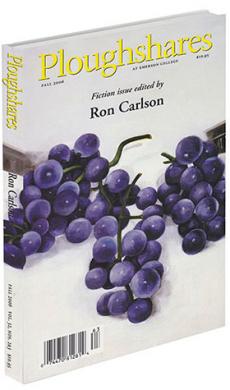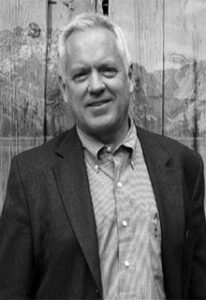A Good Read
What makes a good story? Could the question be asked, What makes a story good? There are nine answers. Here’s one.
One summer many years ago, I was in the mountains of Utah installing a catch-basin water system for a remote cabin. My dear friend George had a blue backhoe on a trailer which had been hauled with some trouble two hundred fifty miles from the city and up the steep switchbacks to the high valley. The backhoe was on a wooden trailer behind a small dump truck, and while backing the truck through the pines, I caught the big passenger side mirror on a tree, and it screamed and bent the door. I felt bad about that, and George gave me a look; it was his truck. But we had a lot to do yet. Unloading the backhoe without a ramp was tricky. There it was after all these miles just two feet from the ground. We used a chainsaw to cut some deadfall and created a makeshift platform which shifted as George backed the machine off the trailer, but nothing turned over and we were ready to dig. Once the shovel had the first full yard of dirt in it, the usefulness of the big blue machine was apparent. We dug a hole the size of
a Volkswagen bug in the wet soil, and it took the rest of the day. When George had it square, I jumped in with a shovel and cleaned it out in the fresh thick twilight. We put all our tools up off the ground and left the truck and the backhoe and walked down to the cabin in the dark. The meadow was full of deer, and we were crusted with dirt which would be our pajamas. These are the nights when you have a beer and eat canned stew and fried bread and you crash out and unload the wobbling backhoe again in your dreams, keeping it upright all night long.
The next day, we did the dangerous work of lifting the cement catch basin, a one-ton square the size of a closet, out of the dump truck and into the hole. The chain looked ridiculous, like string holding a piano, but the backhoe lifted the container up and over into the air. George was an expert with that machine, and he told me to stay clear so that when it fell it wouldn’t kill all of us. He swung it up and over the truck box into the open air and lowered it down until I could turn the thing, and it fit in the ground like a jewel. These are the days when lunch is an apple and a bologna sandwich eaten standing up in a cement container that is going to soon be full of water. We attached the feeder hose, and there was water at our feet. I climbed out of the tank for the last time in this life. It was that kind of project. When we laid the cement lid on the thing, we knew we wouldn’t lift it again.
I was caked with dirt, and my wrists were chafed. George was the kind of person that when things got tough, he laughed. I have often wished I had that. Now he laughed and climbed again onto the backhoe and started down the meadow, trenching for the water line a narrow ditch exactly thirty inches deep. It won’t freeze at thirty inches. I had already spent the morning unrolling the stubborn spool of three-inch black plastic pipe. It had been a wrestling match all the way, but now it lay straight and serious in the sun. I walked down and plugged the end with a stopper of wood, which I taped in place.
Now I searched my back pockets and knew I had lost my pliers so I walked along the black line all the way back to the basin, where I found them in the grass where I’d been working. I put my ear to the cement tank, and I couldn’t hear anything, but I imagined water.
I shoveled the dirt back along the sides of the catch basin, tamping and filling all sides until it was level with the ground. I was mud by now, and I heard George laughing again, and I saw him down by the cabin. He was naked, and he’d propped the end of our pipe up on the backhoe and removed the plug, and he was taking a shower. I put the shovel on my shoulder. Victory was ours.
Later it was my turn, and it was the best shower I have had on earth. The water was warm, heated by the sun in the black pipe, and George left the soap and shampoo on the lip of the backhoe bucket in easy reach.
Afterward, in the cabin, we had dinner. This was the night you have steak and eggs and a plate of hot beans and salsa. As I ate, I had the feeling that the dirt had been keeping me together, and I could feel all my scratches healing and all the muscles I had tested.
It was still early, and George went out to move the backhoe, and I fell into one of the old couches. On the shelf was the old green set of Harvard Classics, and I picked up a book. I won’t even say which one. It was a feeling I remember, the weight of the book in my hands and the weight of the lamplight. I have never known such tangible pleasure of reading as I did that long night.
I haven’t dug that many ditches or even holes since that summer, but I have done a lot of reading. I still find that a good day with a shovel improves a book, though the stories herein don’t need any assistance; they stand whether you’ve been digging or not. Of course there are eight other things that make a story good. They’re in here, too.
This is the 100th issue of
Ploughshares, which is in its 35th year, and the editors decided not to do a retrospective or commemorative to mark the occasion. Indeed, they didn’t even tell me about the occasion until after I had finished. Instead, they let me edit this issue like all my predecessors. I selected the best work I could, and, at the end, I wished there were more room.
So. Go out and do something. Lay in some food. Here’s a book.

